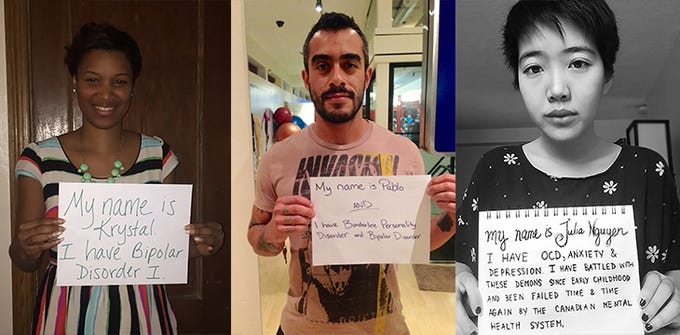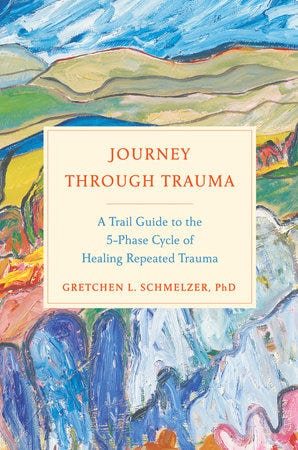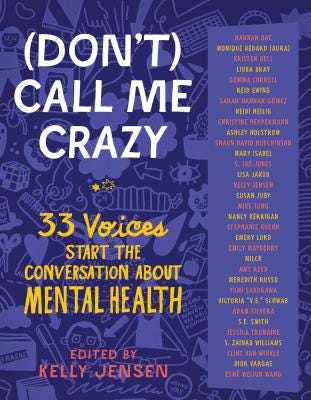Issue 70 | My Asian mother's mental health - and how it affects my own
Guest Editor Karolyn Wong for Mental Illness Awareness Week
Hello! The Care Package looks a little different because we’re now on Substack. You might have gotten an email about that! We moved so we can share more stories, with more visibility, from the community. Our mission is to center the stories and perspectives of Asian American women.
Our 70th (!!) Care Package is a special issue dedicated to mental health for Asian Women, in honor of Mental Illness Awareness Week (Oct 3-9 2021). I’m thrilled to introduce you to Guest Editor Karolyn Wong, a 1.5-generation, queer, gender fluid Chinese American womxn of color born and raised in Oakland. You may also know her as the facilitator of API Womxn Heal x Support x Thrive.
Karolyn’s story made me feel safe talking about my Asian immigrant mother’s mental health — and how it affects my own.
Thank you for being here,
Karen from The Cosmos
Dear Cosmos Community,
Content warning: Complex PTSD (Post-Traumatic Stress Disorder)
The other day I had a hard call with my Mom.
Me: “Mom, I’m telling you again: I can’t continue to have a close relationship with you until you actually get help.”
My Mom: “Oh God, why are you so sensitive? Fine, if I upset you so much, I guess I just won’t call you. I’m sorry for being a bad mom.”
Yet again, my mother was being defensive.
As the youngest of three sisters, I was often guilted by my mom into taking her side. It got to the point where I felt emotionally responsible for her feelings. For so long, I was trying to save her while putting my own needs second. And I realized how much of my mom’s suffering and agreements with herself became my own.
Growing up in China and Hong Kong during the 1950s, my mother didn’t have much of a childhood, let alone a sisterhood. She was the eldest of 8 children and forced to raise her younger siblings alone as her parents worked long hours to provide rice to eat. “No” was rarely an option if she wanted to avoid a beating from her father. While I don’t know much about my grandfather, I understand he coped with alcohol and took his stress out on his wife and children.
And while my mother was able to break free by beginning a new life in the United States in her twenties, she never fully escaped the patterns of harm that were then passed down to me and my siblings.
It took my body breaking down from a toxic work environment to finally seek the support I needed and to be diagnosed with complex PTSD, or post-traumatic stress disorder. It took therapy as well as reconnecting to my ancestors’ traditional medicine like energy healing and martial arts, to have the resolve to tell my mother: “I love you and NO unless you get help, I can’t have a close relationship with you. You have to want to help yourself before I can help you. I’m willing to love you from a distance.”
We’re often taught to believe that we don’t love our family or we’re selfish if we say “no” or assert our needs and desires for our relationships and our lives.
Do you ever feel guilty for placing boundaries with your loved ones?
Once I prioritized my healing and had the courage to say “no more,” with family, work, and in my personal life, my life changed.
I could discern when it was my mother’s voice in my mind vs. my intuition and higher self.
I set boundaries for the energy that I did and did not want in my life, including my relationships with family, work, and in my personal life
I gave myself permission to allow safety, joy, and connection in my body - without feeling guilty about it.
This is possible for you, too. I want to help you create healthy boundaries so that you can feel confident expressing your true needs and desires, to say YES to what brings you joy, and to cultivate a loving relationship with yourself and your family (even if that means doing it from far away!).
This is why I created Light Flow: A 4 Month Healing, Growth, and Liberation Program for Asian and Pacific Islander Womxn. Imagine supportive mentorship and coaching with folks who understand you. This program is a culmination of the experiences and practices that helped me on my journey of healing, and I hope it can help you, too. You can learn more about it here :)
P.S. RSVP here for my free workshop next Friday 10/15: Letting That Shit Go To Let In The Good. We’ll listen to our bodies to see what stories or experiences need honoring and letting go, so that we can invite new energy, experiences, and joy in our daily lives.
Karolyn Wong | @apixwomxnhealxsupportxthrive
Cosmos Classifieds
A new place to help you find Asian American therapists & mental health practitioners committed to serving the community. Posts are sponsored by practitioners. Email me at karen@jointhecosmos.com if you're interested in a feature!
Israa Nasir | Mental Health Coach | sliding scale pricing available
Using psychotherapy-based techniques, my coaching sessions will help identify your mental wellness goals and develop a plan to increase coping skills like self-care, resilience, healthy boundaries, and improving communication skills, (or anything you want to improve in your life). If you are looking to improve your emotional health and self-awareness, I'd love to chat with you! You can book a complimentary consultation session with me here.
Culture Corner
This week I curated my favorite places for mental health stories. If you have any recommendations, share them with me at karen@jointhecosmos.com, and I’ll feature them in an upcoming Care Package!
Note: Book links are connected to The Cosmos Bookshop affiliate page. If you purchase a book from there, you'll be supporting our work and local independent bookstores!
Foreign Bodies is always on my mood board. I read it every Monday before writing The Care Package to remind me that the work to de-stigmatize mental illness begins with personal storytelling, and there is still a lot of work to do. On days where I feel too heavy to write, I look to writer Fiza Pirani’s commitment to center immigrant and refugee perspectives — and I feel hopeful, every time.
“It's important to humanize mental illness and put faces to the subject”. In 2015, Latina Feminist Mental Health Advocate Dior Vargas started People of Color and Mental Illness, a photography project to give people of color the space to share their stories with mental illness. The project went viral, and anyone can be part of it by submitting their photo and story, even today!
I got emotional seeing people who look like me, people who understand the experience of being people of color, breaking the stigma in their communities. I get emotional seeing that the simple, accessible act of telling your story can contribute to culture change. I get emotional because I feel how hard it is to tell my story, still, even though I call myself a “Mental Health Advocate”. I still hesitate to reveal my diagnoses! I am scared! But people like me are doing it, and that helps me believe I can, too.
Journey Through Trauma is the only book I’ll recommend for folks with trauma because it is so kind. I know how that sounds — how can a book be kind? Gretchen writes with a self-awareness that I find hard to master in “mental health books”, especially those written by clinicians. She never wavers into the “self-help” territory, never sounds prescriptive or detached. She names exactly how it feels to resist the journey to get better, and that is why I believe her when she tells me I don’t have to resist! Enough of me talking, here’s an excerpt I keep on my nightstand:
“But I can see you shaking your head at the word hero. Most people who have experienced trauma do not feel heroic…I have to admit that I sneered at the metaphor myself. Every time my therapist used the word courageous I would roll my eyes and look away.
But I misunderstood my therapist when she was using the term courageous. I heard the word courage and thought she implied that I had acted courageously as a child. But I had done what all people who come through trauma hope to do: I survived it. Some people might say that survival takes courage, but mostly it takes perseverance — the perseverance of feeling hopeless and going forward anyway, of doing whatever needs to be done. It takes the ability to put your head down and keep going. It takes some kind of hope.”
I love that (Don’t) Call me Crazy is an anthology for young readers. I love that each story of mental illness in this book expands my worldview, which can be overly focused on my own experience with depression, anxiety, and complex PTSD. Depression and anxiety get a lot of mental health coverage, which is why I sought out stories about schizophrenia, bipolar disorder, borderline personality disorder, phobias, and even trichotillomania (the compulsion to pull out one’s hair). This anthology reminds me that everyone’s experience of mental illness is different, though we try to generalize with diagnoses and things like “Mental Illness Awareness Week”. This anthology reminds me that stories are truth as much as medical definitions, and everyone’s truth deserves the space to be shared.
Mental Health Hotlines
National Suicide Prevention Lifeline | 1-800-273-TALK (8255)
National Youth Crisis Hotline | 1-800-442-HOPE (4673)
Crisis Text Line | Text HOME to 741741







